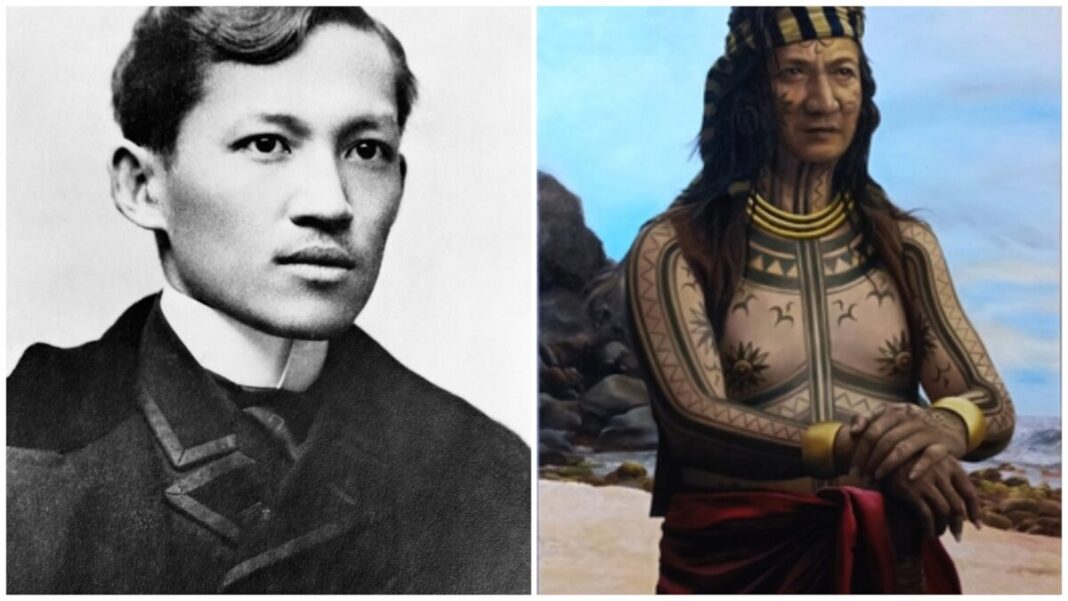When we think of national hero José Rizal, the image that often comes to mind is of a brilliant reformist, a sharp writer, and a patriot with a deep sense of Filipino identity. But another part of his legacy often goes misunderstood, his connection to Lapu-Lapu. A popular notion claims Rizal “discovered” the legendary warrior of Mactan. The truth, however, is both more nuanced and more powerful.
What Rizal Really Did
In 1890, while in Europe, Rizal published an annotated edition of Sucesos de las Islas Filipinas, a 17th-century Spanish account by Antonio de Morga. In it, Rizal included a crucial note, he identified “Si Lapulapu” as the chieftain who opposed Ferdinand Magellan during the Battle of Mactan in 1521. Interestingly, Morga’s original work made no direct mention of Lapu-Lapu by name.
Though Rizal didn’t unearth new historical documents, his act of naming “Lapulapu” in a widely read annotated text helped carve the warrior into the consciousness of a nation still forming its sense of identity. This simple mention helped transform a largely oral and localized hero into a national symbol.
Why It Matters
Rizal’s annotation wasn’t just a footnote, it was a political and cultural statement. At a time when the Propaganda Movement sought to assert Filipino dignity and history against colonial erasure, recognizing Lapu-Lapu as a figure of resistance aligned perfectly with their mission.
By using “Si Lapulapu,” Rizal elevated a pre-colonial leader as a face of defiance. While historians would later debate whether “Si” was part of the name or a linguistic marker, its lasting effect was clear. Rizal’s version standardized Lapu-Lapu’s name and cemented him in the broader narrative of Filipino resistance.
The Source of the Confusion
This important act of recognition likely led to the misconception that Rizal had “discovered” Lapu-Lapu. In truth, Rizal did what historians and nationalists often do, he reshaped known history to serve the present. The lack of direct Spanish documentation about Lapu-Lapu created gaps, and Rizal’s annotation filled them with meaning, not invention.
Oral traditions in Mactan and Cebu had preserved Lapu-Lapu’s legacy long before Rizal’s time. But it was Rizal who gave those stories national attention and intellectual weight in the eyes of colonized Filipinos hungry for heroes.
A Historian, Not an Archaeologist
Rizal didn’t uncover Lapu-Lapu. He amplified him.
His work was not an excavation of forgotten facts, but a reclamation of identity. In that sense, Rizal acted more like a mythmaker than a discoverer, one who reached into the past not to uncover something new, but to give old truths the recognition they deserved.

